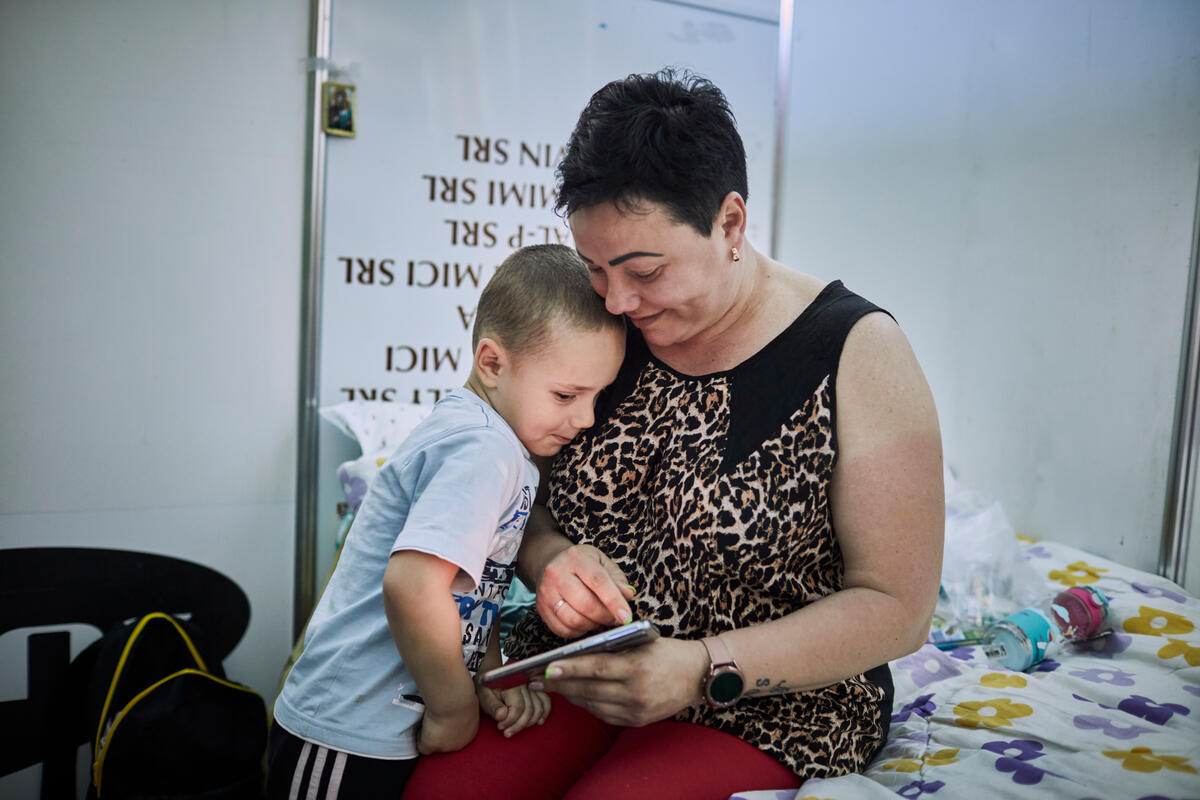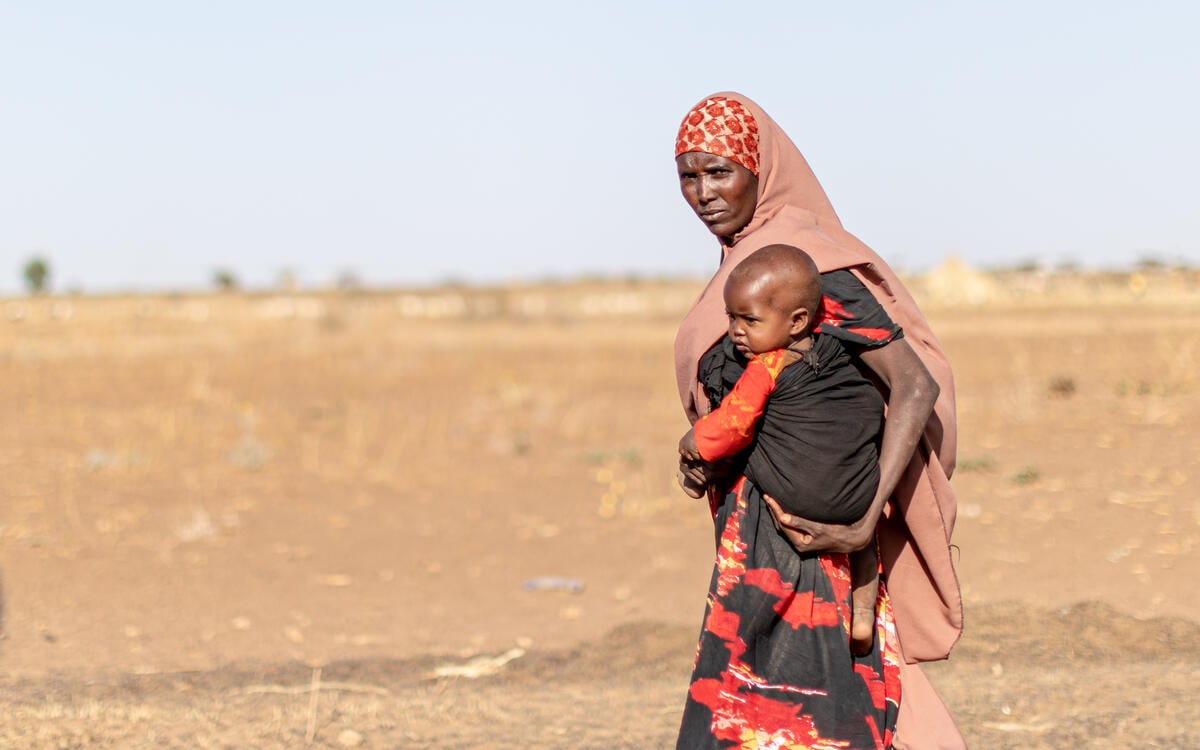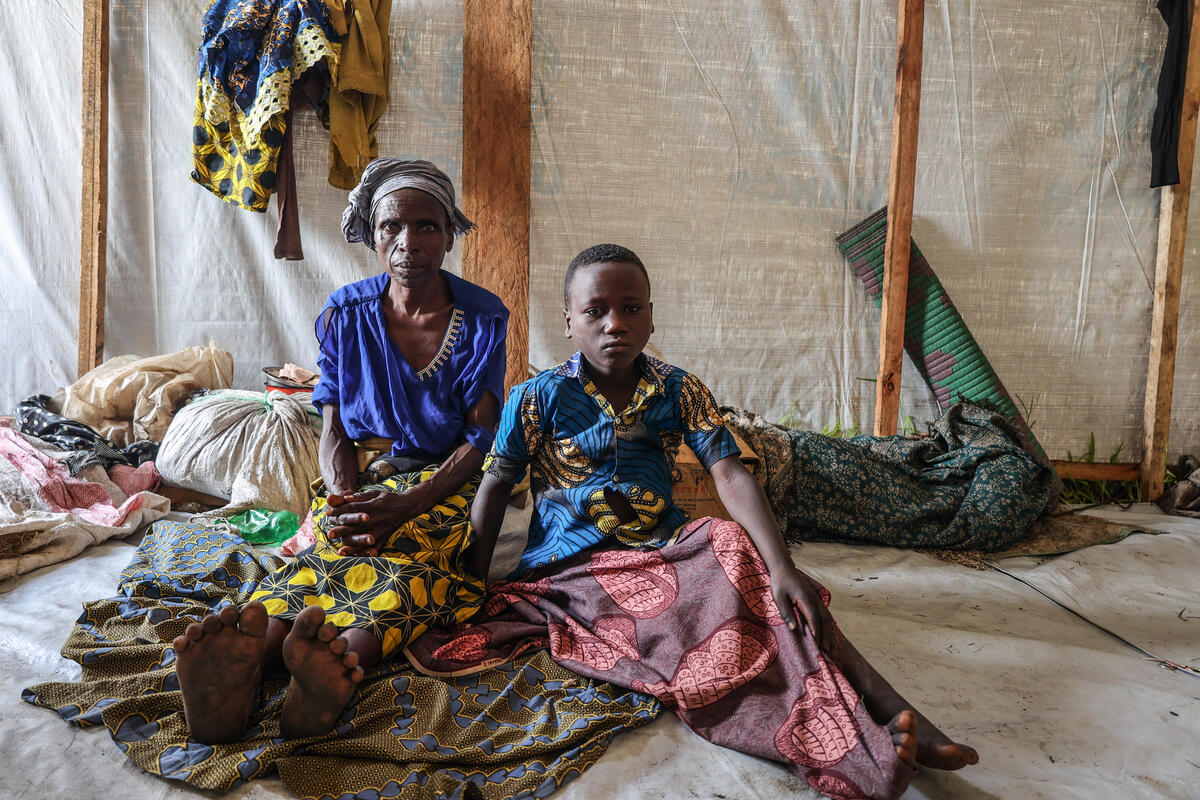Amid the violence in Colombia, an indigenous people struggle for their identity
Amid the violence in Colombia, an indigenous people struggle for their identity

LA GUAÑA, Ecuador, 14 August (UNHCR) - The Awa are an indigenous people who straddle the Ecuador-Colombia border but do not feel part of the modern societies on either side. That has not saved them suffering the consequences of the armed conflict that has battered Colombia for years.
Expecting more difficulties for the Awa ahead, a UNHCR team walked for five hours from the nearest road to reach an Awa community centre to discuss how to help them prepare for a new influx of displaced members of their traditional society arriving from Colombia. Their history is one of displacement - and resilience as they maintain their own identity.
For the more than 4,000 Awa in Ecuador and some 40,000 in Colombia the border is non-existent. The ´Grand Awa Family´ is considered one territory, irrespective of internationally recognized borders. Unfortunately for the Awa people they live in one of the areas most affected by conflict.
Armed clashes between the Fuerzas Armadas Revolucionarias de Colombia (FARC) guerrillas and the Colombian army have caused displacement many times across the border into Ecuador. Even though the numbers are small and people eventually return to Colombia, the impact on Awa families is immense. The Awa also have often been coerced into the conflict
Even though current peace talks between the government and FARC guerrillas have created high expectations of ending the conflict, it is expected violence will continue and reconciliation will take years. The Awa area is also affected by a variety of illicit activities, such as drugs trafficking and smuggling of arms, munitions and fuel.
Displacement is part of the Awa history as they have migrated over the years from Central America, through western Colombia to the south, always locating themselves in lush green areas between the Andes and the Pacific Ocean. However, the current pressure on their territory by ´hispanos´ is making defending their boundaries a question of survival.
Their traditional way of life, existing in harmony with the natural environment, can only survive with basic outside support and respect for their territory. Even their language, Awa-pit, is only spoken by part of the Awa family, mostly the elderly.
Together with the Ecuadorian Federation of Awa Centres, the Refugee Directorate of the Ministry of Foreign Affairs, local authorities and World Food Programme, UNHCR has worked with the Awa people on contingency planning for possible further cross-border displacements.
While accepting ´family´ members from Colombia is seen as natural, resources are scarce and additional support is needed. Just accessing La Guaña requires driving some three hours from the border town Tulcán, where UNHCR has a Field Office, then walking five arduous hours along paths with mud and rocks.
The 80 families in La Guaña, with six or seven members per family, welcomed the visit and discussed the current situation. Through a mapping exercise of the social and physical infrastructure, community members could easily relate to the contingency plans.
"We are worried about the situation in Colombia as our brothers continue to suffer from harassment by the guerrillas and the military present in our territory. Both sides blame us as traitors when armed incidents occur," said Victor, a community leader.
There are also rumours that authorities from both countries plan to destroy bridges over the San Juan River, the border, to stop smuggling. It would impair links between the Awa people across the border but would be unlikely to slow smuggling. Many Awa in Colombia also depend on basic services provided in Ecuador.
If there is further displacement, logistics would pose a significant challenge. New arrivals from Colombia would need basic relief items, which have to be transported by horses or even helicopter. To address the current situation UNHCR has prepositioned 10 lightweight tents in the nearby village of Chical, in the office of the local authorities.
"The local authorities fully support the plans of the Awa people -- small contingency plans for 20 Awa families from Colombia in La Guaña and 10 families in the adjacent community of Pailón," said Emilio, president of the local council. "And it should be seen as an important gesture of solidarity."
For UNHCR Ecuador and Colombia this area is of particular importance as displacement has occurred in the past and is most likely to happen again. Field offices coordinate to monitor the volatile situation.
The Awa people do not have an interest in receiving ´refugee´ status and the associated documentation: their interest is solely recognition of their distinct identity. They want respect for their territory, communication equipment, support to strengthen their community, livelihood projects and relief items in difficult times. One community member suggested that the Ecuadorian army help in social infrastructure projects, which could improve their often-strained relations with the Awa people.
"We need you to be here; there are still too many actors involved in the armed conflict and the situation is not yet resolved," community member Don Juan told the UNHCR team. "We as Awa people depend on neutral organizations to counterbalance the people with other interests."
By Jozef Merkx in La Guana








